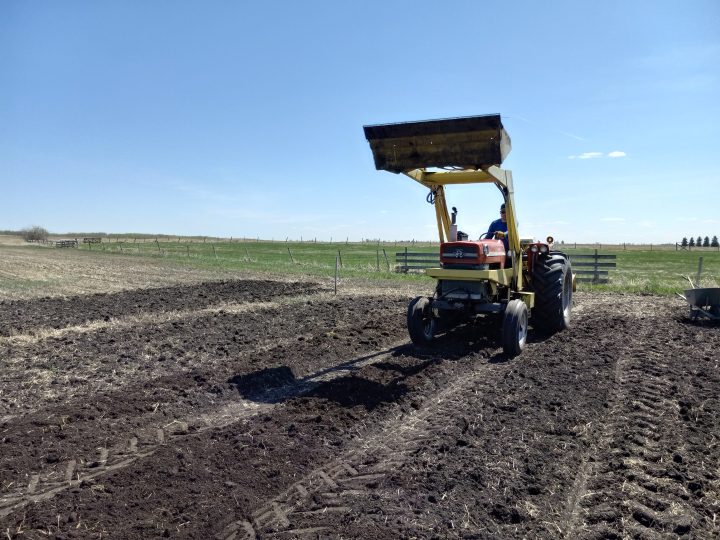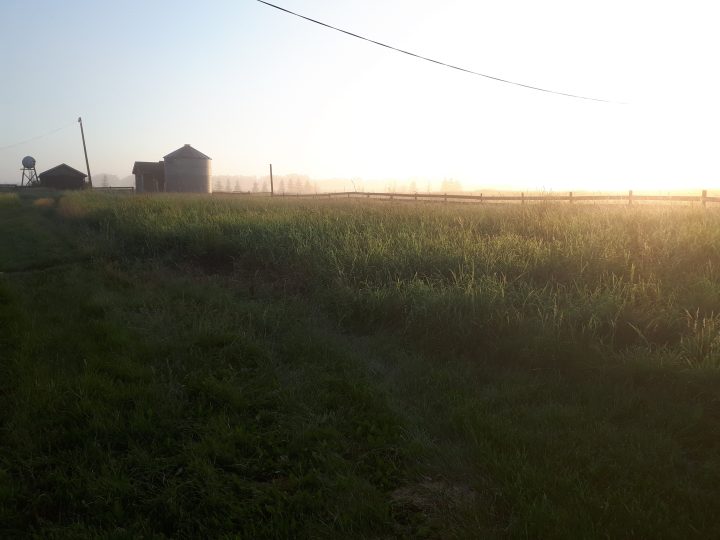Young Agrarians is celebrating the ninth year of the Business Mentorship Network (BMN) program in BC and the expansion of the program across the Prairies! The BMN offers business mentorships to a diverse array of new and young farmers. Through one-on-one mentorship, peer networks and online workshops young farmers develop the skills necessary to operate ecologically sustainable and financially viable farm businesses.
Applications open for Mentees across Western Canada in October 2023. Mentor applications are accepted year-round. Check out the Business Mentorship Network page for more information!
Want to learn more about our Mentees (or Mentors)? Below you’ll find a Q&A where you can learn all about their farm and why they joined the Business Mentorship Network. If you’d like to read about the experiences of other Mentees/Mentors, head to our blog here.
Meet a Mentee: Fairfolk Farm
My name is Pinette Robinson and my husband is Brandon Piché. Our farm is called Fairfolk Farm and my mentor is John Mills from Eagle Creek Farm.
Where do you farm?
Fairfolk Farm is on Treaty 6 territory, located about 45 minutes northeast of Edmonton.
What do you farm?
We have a mixed vegetable garden, which is the main enterprise of the farm. We will also be doing some agrotourism, by renting out a small cabin situated on the far side of the yard.
What inspired you to get into farming?
It was a dream of ours to own an old farmhouse on some land, to be self sustaining and sell vegetables at the farmers market. We didn’t think it was going to happen quite this fast, but when the pandemic hit, it put a lot of things into perspective. We decided to go for it, in order to live the life we want to live now, as opposed to when we are older.
How did you learn how to farm?
Both my husband and I lived on farms for some of our childhood, and both always wanted to return to that lifestyle. We are also big into gardening, so we learned a lot just by doing it. In 2021, I took 3 month off my regular job to work at Riverbend Gardens in Edmonton. I felt it was necessary to get some hands-on experience in growing vegetables as a business as opposed to a hobby. It was super beneficial, and gave me a lot of good insight into the industry, as well as some great contacts.
What type of business structure is your farm?
We are a partnership.
How much land is under production on your farm?
Currently the garden is 2.5 acres, but we plan on expanding that quite a bit over the next few years.
What is your land tenure?
We own our own land.

What types of ecological farm practices and/or responses to climate change realities do you engage in?
We are both environmentally conscious, so we want to make sure we engage in farming practices that will help build soil and invigorate our land. We have a low-till system with permanent garden beds. We are also establishing lots of wind rows and shelter belts along our property and surrounding the gardens. We are investing in a drip-irrigation system to limit the amount of water we will use for our production. We plan on having chickens and sheep and to use the manure for the gardens, as opposed to using chemical fertilizers.
Most of our farmable land is currently rented out for crops and farmed conventionally. As we get our bearings and start to use more and more of our land ourselves, we plan on growing organically. We also want to leave low lying spots to revert into small wetland areas. We have a wetland map from Alberta that shows us which of the low lying spots have potential to be wetlands. Most of them are currently seeded every year, so don’t have any of the characteristic wetland plants or animals.
Lastly, we are working towards applying for organic certification in the next 2-3 years, and are looking into grants and other funding opportunities to convert our whole farm to solar power. At one point, we were looking into having a solar farm on 40 acres of our property, but a solar project of that size has really high start-up costs, and it’s not likely to be possible for us to get that going.
Why did you apply for business mentorship?
Being first-generation farmers means that we have little experience in running a farm as a business. It ‘s one thing to grow things. A whole other thing is to make money doing it.
What is the greatest business challenge you face as a new farmer?
Lack of funds. Start-up costs are really, really expensive for first generation farmers. We don’t have access to equipment, so have to buy what we need before we can even make any money.
What is your primary business goal for the season?
We are going to be selling at our first farmers market this year, so my main goal is for that to be a success, and to get through the season with a sense of accomplishment. Over the fall and winter I will be finalizing the business plan that I’ve been working on since we bought the farm. That will hopefully help us get some funding for projects we plan on carrying out of the next couple years.
What business tools could you not live without?
My computer and my phone. I take notes and make spreadsheets for everything, including my taxes, and use my phone for all my online marketing. Everything is on our Google Drive, so I can access it when I’m at home, in the garden, anywhere.
If you had a farming robot what would it be?
All my bookkeeping and most of the weeding. (Not all of it, because I actually enjoy weeding).
How can we find out more about you, your farm, and its products?
Fairfolk Farm is on both Instagram and Facebook as @fairfolkfarm.

